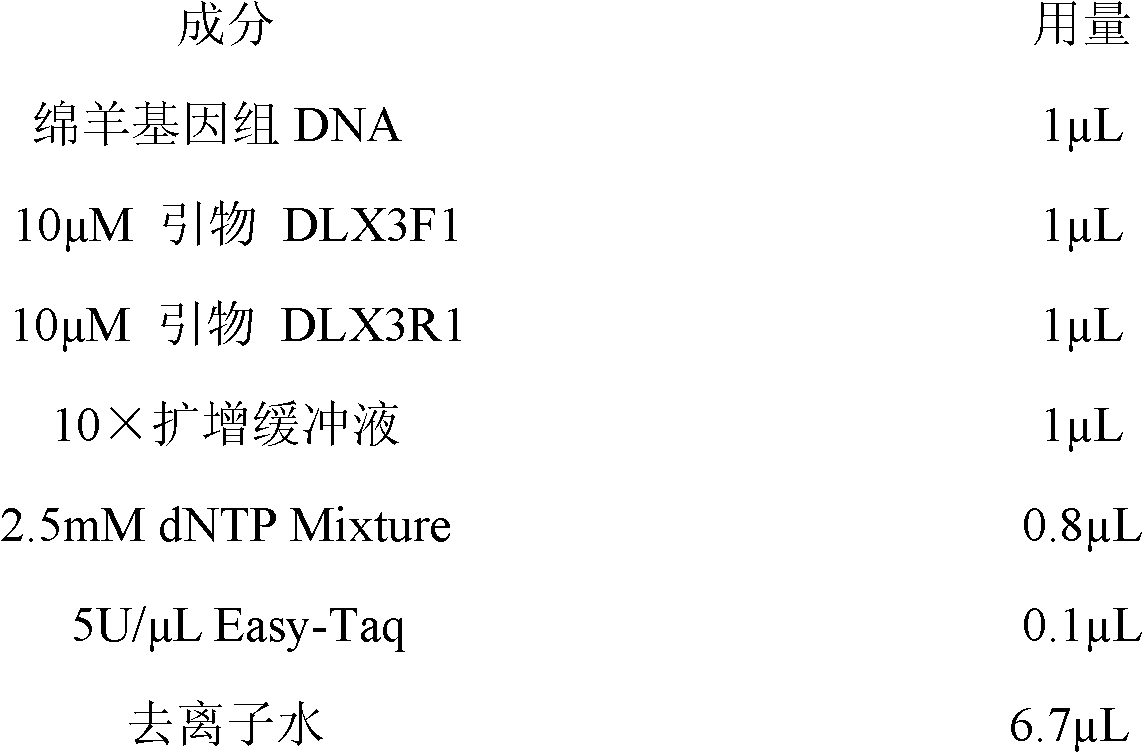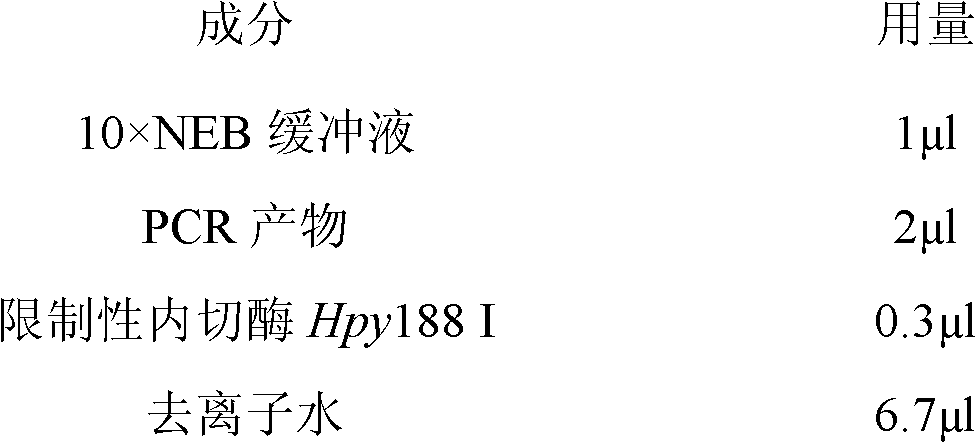A Molecular Marking Method for Sheep Wool Curl
A technology of molecular marking and curling degree, which is applied in the direction of biochemical equipment and methods, microbial measurement/inspection, etc., can solve problems such as hindering hair follicle re-growth, and achieve the effect of reducing breeding costs, low detection condition requirements, and high efficiency
- Summary
- Abstract
- Description
- Claims
- Application Information
AI Technical Summary
Problems solved by technology
Method used
Image
Examples
specific Embodiment approach 1
[0016] Specific embodiment one: the molecular marking method of sheep wool crimp is carried out according to the following steps:
[0017] 1. Using the phenol / chloroform method to extract sheep genomic DNA from the ear tissue of Chinese Merino sheep, design primers DLX3F1 and DLX3R1 according to the 228 site of the 3′UTR region of the sheep DLX3 gene, and then perform PCR amplification on the sheep genomic DNA to obtain The PCR amplified product is digested with the restriction endonuclease Hpy188I to obtain the digested product;
[0018] 2. Use agarose gel with a concentration of 2% to 3% to electrophoresis separate the digested products, and then determine the genotype according to the electrophoresis separation results. The criteria for determination: ① Electrophoresis presents two bands, the size of which is 294bp and 214bp, There is no mutation at the 228 site in the 3′UTR region of the sheep DLX3 gene, and the PCR amplification product can be completely cut by the restri...
specific Embodiment approach 2
[0041] Specific embodiment two: the difference between this embodiment and specific embodiment one is that the reaction system for PCR amplification in step one is a 10 μL reaction system, which consists of the following components:
[0042]
[0043] PCR amplification conditions were: 94°C pre-denaturation for 5 min, 94°C denaturation for 30 s, 55°C annealing for 30 s, 72°C extension for 30 s, a total of 33 cycles, 72°C extension for 7 min, and 4°C incubation. Others are the same as in the first embodiment.
specific Embodiment approach 3
[0044] Specific embodiment three: the difference between this embodiment and specific embodiment one is that the enzyme digestion system in step one is as follows:
[0045]
[0046] The enzyme digestion conditions are: digestion at 37°C overnight. Others are the same as in the first embodiment.
[0047]
[0048]
PUM
 Login to View More
Login to View More Abstract
Description
Claims
Application Information
 Login to View More
Login to View More - R&D
- Intellectual Property
- Life Sciences
- Materials
- Tech Scout
- Unparalleled Data Quality
- Higher Quality Content
- 60% Fewer Hallucinations
Browse by: Latest US Patents, China's latest patents, Technical Efficacy Thesaurus, Application Domain, Technology Topic, Popular Technical Reports.
© 2025 PatSnap. All rights reserved.Legal|Privacy policy|Modern Slavery Act Transparency Statement|Sitemap|About US| Contact US: help@patsnap.com



